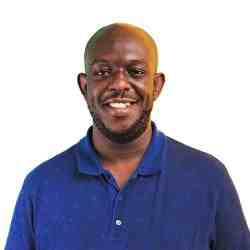Introduction
xx
The New Idea
Akkai is empowering members of minority groups, such as sexual minorities (LGBTQI community) to become leaders; thereby creating a domain for discussions on issues of national importance to become more convergent. Currently consultations on public issues in India are restricted to the voices of a very few, including the urban elite and those with existing power, influence and networks. Through her organization Ondede, Akkai is taking individuals on a transformative journey in leadership to lend the unique perspective of their minority community to larger discussions, thus facilitating access to fundamental human rights that have previously eluded these groups. Akkai envisages emergence of societal norms and legal provisions that are holistic/universal, which then put an end to discriminatory provisions that have been blind to minorities. For example, in hospitals there is no norm to discuss which ward to admit transgender patients.
Akkai also recognizes that sexual minorities need to be made visible by distilling stereotypes and prejudices towards this community. She is thus simultaneously engaging with stakeholders such as the Media, Law Enforcement and Policy Makers to help prepare an environment of acceptance and wider discussion on issues such as Human Rights and Domestic Violence. Her intervention through trainings, workshops and representation at various judicial cases is paving way for convergence from many individuals and institutions through dispelling barriers and keeping traction to sexual minority group rights.
Akkai has been able to create coalitions of community dialogues that bring together diverse voices of individuals, civil society organizations and other key stakeholders to discuss diverse issues. Through these dialouges, Ondede has been able to identify and train 30 leaders in the State of Karnataka. These leaders successfully played a significant role in extending the definition of ‘privacy’ under the Indian Penal Code (IPC) – Section 377 (Act on Homosexuality). Akkai plans to replicate this success to every district in India across a cross section of religious, sexual and caste based minorities.
The Problem
Historically, societies all over the world have been intolerant of sexual minorities, such as the LGQBTI community. These communities have been persecuted as criminals, distilled within society as ‘mentally ill’ and constricted of basic rights. The bias, fear and hatred towards the LGQBTI community (known as homophobia) largely stems from what is culturally constructed to be ‘normal’. The status of the LGBTQI community in India is further exacerbated by judicial/constitutional exclusion with no laws such as reservations in higher educational institutions or workplaces to serve as enablers. Far from enabling, the laws, in fact are inimical as proved by the response to a Public Interest Litigation stating that Government policy does not allow transgenders into higher education (2014). The cultural environment and popular media projections of individuals hailing from this community further perpetrate their stigmatization. For example, in Bollywood (revenue over $6.5 Billion), films continue to shape this group of people as either terrifying villains or use them in some form of comic relief.
The dire consequence of such disownment, coupled with a hostile judicial environment, making homosexuality a culpable offence, has resulted in skyrocketing suicide rates among the LGQBTI population. A gay person is now four times more likely to commit suicide in comparison to the rest of the population – whilst transsexual people are ten times more likely. (TOI and Indian Express Reports 2015).
Whilst there has been a big movement in the rights of the LGQBTI community in India, existing interventions have so far been limited in scope. The popular movements have been restricted to activism (pride parades and slogan mongering) or academic discourses (publishing papers and statistics on discrimination) and at best advocacy groups or small closely knit collectives that double up as counselling spaces. Moreover, these interventions have mostly stayed limited to the urban-elite, English speaking and often of higher education. Even some groups that have seen a few success stories, have been overly dependent on a single leader as spoke-person and movements have been stopped by removing these alpha leaders. As well as this, members of these excluded communities lack the skills and know how, to be able to effectively present their perspective. This dampens the capacity of groups such as the LGQBTI to contribute in debates and discussions.
While constitutional protection is important, it is incomplete as a means to inclusion as societal rejection of these communities is fundamentally not addressed. There exists a gaping opportunity with respect to minority rights movements to move from constitutional/ institution based protection (such as reservations) and activism to begin influencing the societal fabric to build room for the perspectives of minority communities and capability within these communities to make themselves heard.
The Strategy
Akkai believes that in order for minority groups such as the LGQBTI community to be made inclusive, more members of these groups have to be given the capacity, skills and validation to effectively voice their perspectives and emerge as leaders. Akkai also identifies the need for an environment to be created for acceptance by mainstream society of the minority group during consultations. She sees the stigma and non-conformity of communities with groups such as transgenders as one that can halt progress in diverse, inclusive discussions. Akkai sees a potential in backlash or reluctance of those with power or in position of authority to sit together and consult with a group like the LGQBTI community. Akkai uses her leverage as a thought leader amongst the sexual minority community in India to first gain traction for the larger movement. By taking on Judicial Cases and using advocacy through the media, policy makers and other relevant stakeholders, Akkai is able to put a spotlight on minority groups. She finds and works with these stakeholders to then create an environment where wider acceptance and sensitization occurs. For example, in the town of Mysore, Ondede was able to run a workshop with the support of the local Police Commissioner, which saw over 300 Police Officers being trained on the rights of LGQBTI communities and how to treat their cases sensitively. Ondede also continues to work with media houses to not only shift the narrative as to why the voices of minority groups should be given a platform but also trains journalists on how to sensitively report stories on issues relating to minority groups.
Akkai simultaneously curates programs that nurture potential leaders within her community. She first identifies promising individuals and equips them with the skills and know-how to be representing the movement at higher-level consultations. First Akkai maps out the strengths and weaknesses of potential leaders within the minority groups and builds capacity for these individuals to become the most effective representatives of their community. For example, oral communication is a skill that was lacking from one of the leaders Akkai identified in Karnataka and she was able to create a program for this skill to be built through workshops from external experts. Akkai then takes these potential leaders on an ‘apprenticeship’ where they are invited to take part in higher level consultations with already established leaders like herself. In fact, during any higher-level consultations that Akkai attends, she takes with her a diverse representation of these potential leaders from various minority groups. She establishes a norm where these leaders not only build capacity through shadowing but they also play an equal lead role in creating diverse consultations and input. For example, a recent visit to the Reserve Bank of India to consult about the economic inclusion of sexual minorities was attended by a diverse cadre of leaders, identified and nurtured through Ondede. This journey not only builds capacity but it also brings about self-confidence and worth among these community members.
Through creating traction and engagement, Akkai is then able to bring together stakeholders at a common venue for a convergence of dialogue. For example, in the case of the discussion of forced marriage, Akkai was able to bring together children, the women’s movement, lawyers, psychologists, local law enforcement and the LGQBT community. During these discussions, the setting is curated for an open, inclusive and safe space for diverse minority groups within society. These discussions, which happen regularly, set the precedent for contribution, inclusion and debate from various groups within society to broad, local, regional and national issues.
The new, identified leaders are also equipped with the additional capacity to go into their own communities and continue grassroots engagement to multiply attendance in consultations and ultimately create more leaders; whilst continuing representations on larger platforms and broader issues. Akkai sees the creation of many leaders as a route that creates a faceless community, leveraging the power of the collective to engage for wider acceptance on more indirect issues such as domestic violence and employment.
Moving forward, Akkai plans to use the self-perpetuating cycle of community leaders to expand dialogues and discussions into other states of India. She sees a decentralized cycle of convergent consultations happening through creating traction among stakeholders whilst developing leaders within minority groups.
The Person
Akkai’s upbringing is not ordinary of a child growing up in a middle class family in Bangalore. Hailing from a working class family with her father in the air force and her mother a homemaker, Akkai had a comfortable and supportive network around her. It was however her gender that caused her great confusion. At the early age of five, Akkai who was born a male, had tendencies to want to be around girls, wear girls clothing and do things girls would. As she got older, these feelings within her only got stronger and her activities represented this.
This invited anger and alienation from her parents, relatives and friends at school. No matter how much those around her told her that she was a boy or she tried to make herself believe so, her emotions made her feel strongly otherwise. Her parents in the hope of ‘curing’ their child took her to traditional healers and local doctors. When this did not work, Akkai faced physical punishment in the form of having hot water poured over her legs by her father. At the age of twelve, Akkai bowing to the pressure of society, feeling lonely and confused, tried to commit suicide twice.
For Akkai, the stigma, alienation and bullying led her to drop out of school during tenth grade as well as staying away from any mainstream work. She found acceptance and a community through the many transgender’s working as sex workers in Bangalore’s famous Cubbon Park. She supported herself and her family through engaging in sex work for four years, unknown to her family or friends. During these four years, Akkai came to know that there are many more like her out there. Seeing the abuse and sexual violence encountered by the transgender community, Akkai was motivated to join Sangama, an NGO that works with sexual minorities. Sangama was the first place Akkai found to be accepting of people like herself and the wider LGQBTI community. It is here that she learnt about her rights as a human being and found the courage to stand up for minority groups and oppressed like the LGQBTI community. Her work at Sangama gave her the opportunity to work with larger section of society whilst also engaging with the media, judiciary and other bodies on the issues of sex work, violence and rights for sexual minorities.
After spending time at Sangama, during which she achieved some incredible person feats including winning the prestigious Rajyotsava Award, Akkai felt the need to go beyond being one of the very few central representatives of the LGBTQI community. She found that her life was dedicated to work for wider minority communities such as the disabled and dalits and not such sexual minorities. She found that there was no organization in India that was giving minority groups such as the Dalits, the platform to speak about issues such as sexual violence or domestic violence. Thus is 2012; Akkai went on to co-found Ondede, an organization working to bring in representation of various groups through dialogue, research and action.
Akkai went on to have her sex reassignment surgery in October 2012 and became a female to male transgender. She was the first person in the state of Karnataka to have this surgery.




